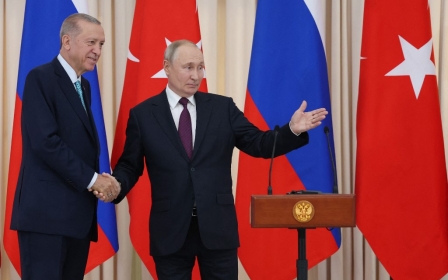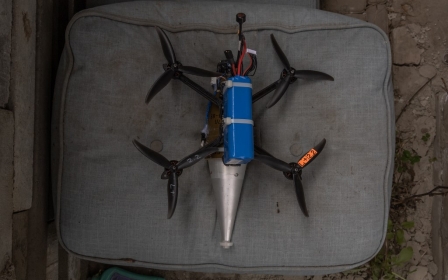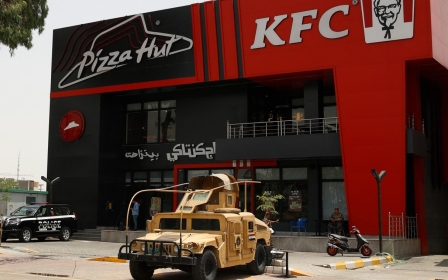Iraq: Bodies of 139 likely Islamic State victims recovered from mass grave

Iraqi authorities have uncovered the remains of scores of people in a mass grave in northern Iraq, likely victims of the Islamic State group.
The bodies were discovered in the Alo Antar hole, a natural desert feature located in Tal Afar around 70km west of Mosul, which was the headquarters of the militant group between 2014 and 2017.
"We have removed the remains of 139 persons and also human body parts," said Dia Karim, director of the mass graves department at the Foundation of Martyrs.
"They include women and men ... according to testimonies, the victims date back to IS rule," or when their predecessor al-Qaeda in Iraq was in the area.
He said the victims were most likely "Yazidis, Shiite Turkmen and security forces personnel from Mosul".
New MEE newsletter: Jerusalem Dispatch
Sign up to get the latest insights and analysis on Israel-Palestine, alongside Turkey Unpacked and other MEE newsletters
IS controlled large parts of Iraq and Syria between 2014 and 2017, but the combined effort of the Iraqi military, local armed groups and a US-led coalition saw the group's power largely wiped out.
They still claim responsibility for sporadic attacks in northern Iraq and Syria, while the process of unearthing their many victims across the region has continued.
An official from the Foundation of Martyrs told AFP the victims in Alo Antar "were not buried but dumped" in a hole whose full depth ranges between 12 and 42 metres.
"Some of the victims had been shot and others were found with their throats cut," said Ahmed al-Assadi.
The UN estimates there could be as many as 200 mass graves across the region, containing as many as 12,000 bodies. More than one sinkhole has been identified as being used as a mass grave.
Natia Navrouzov, executive director at Yazda, an organisation advocating for the right of Yazidis, welcoming the uncovering of the grave at Alo Antar.
"We have been advocating for the exhumation of this specific mass grave for almost a decade," she said in a statement.
"We believe that it will give answers and some closure to many Yazidi families but also to families from other communities."
Middle East Eye delivers independent and unrivalled coverage and analysis of the Middle East, North Africa and beyond. To learn more about republishing this content and the associated fees, please fill out this form. More about MEE can be found here.




